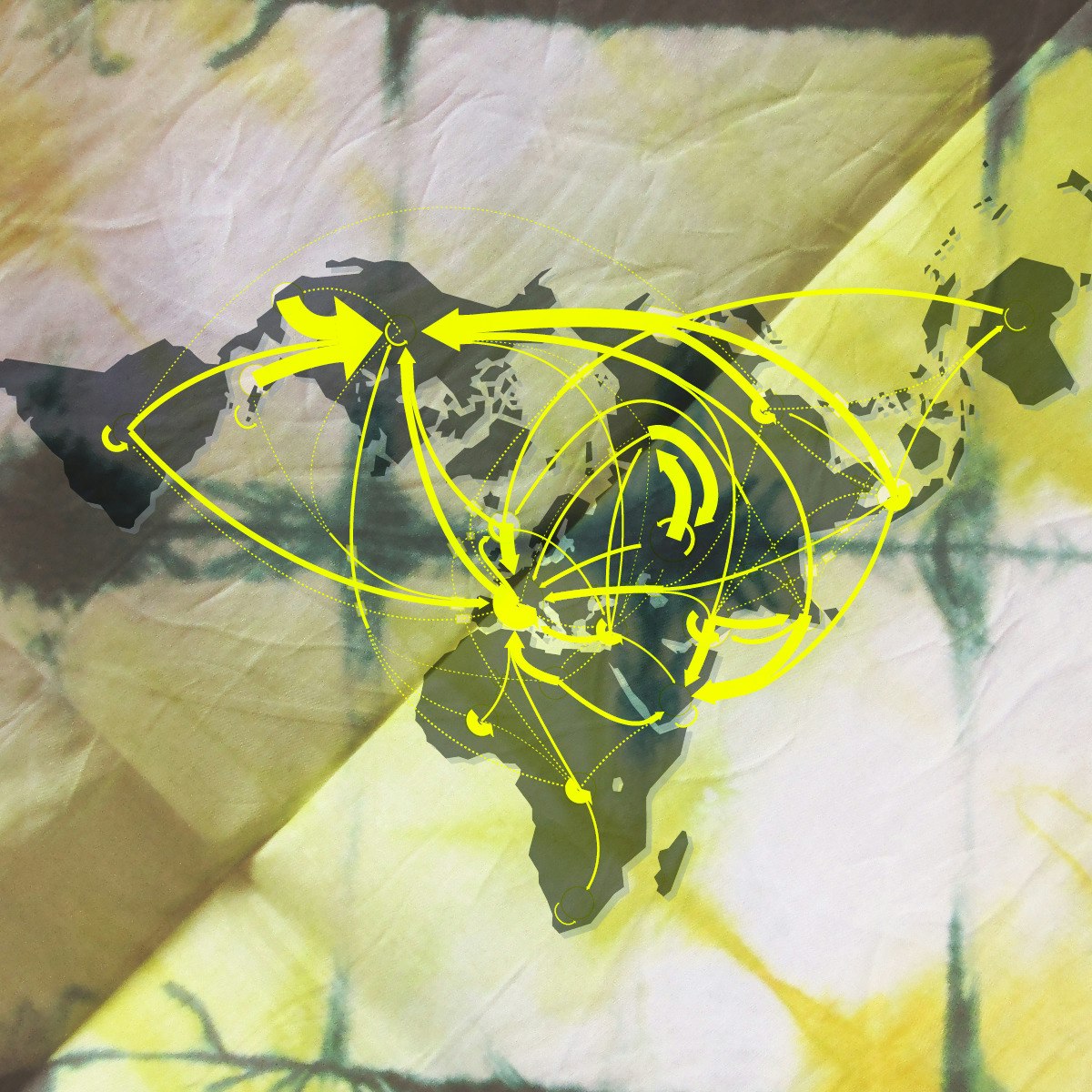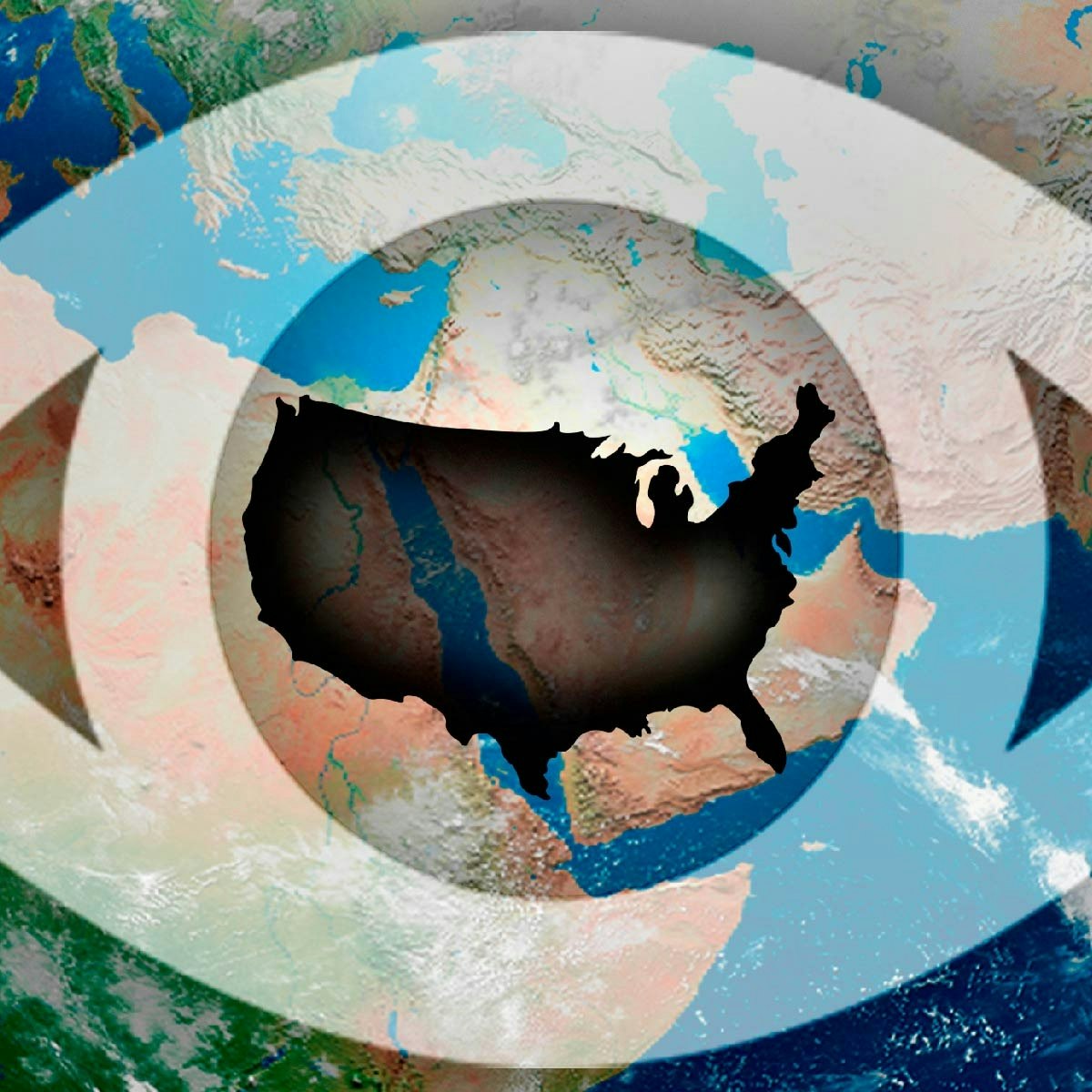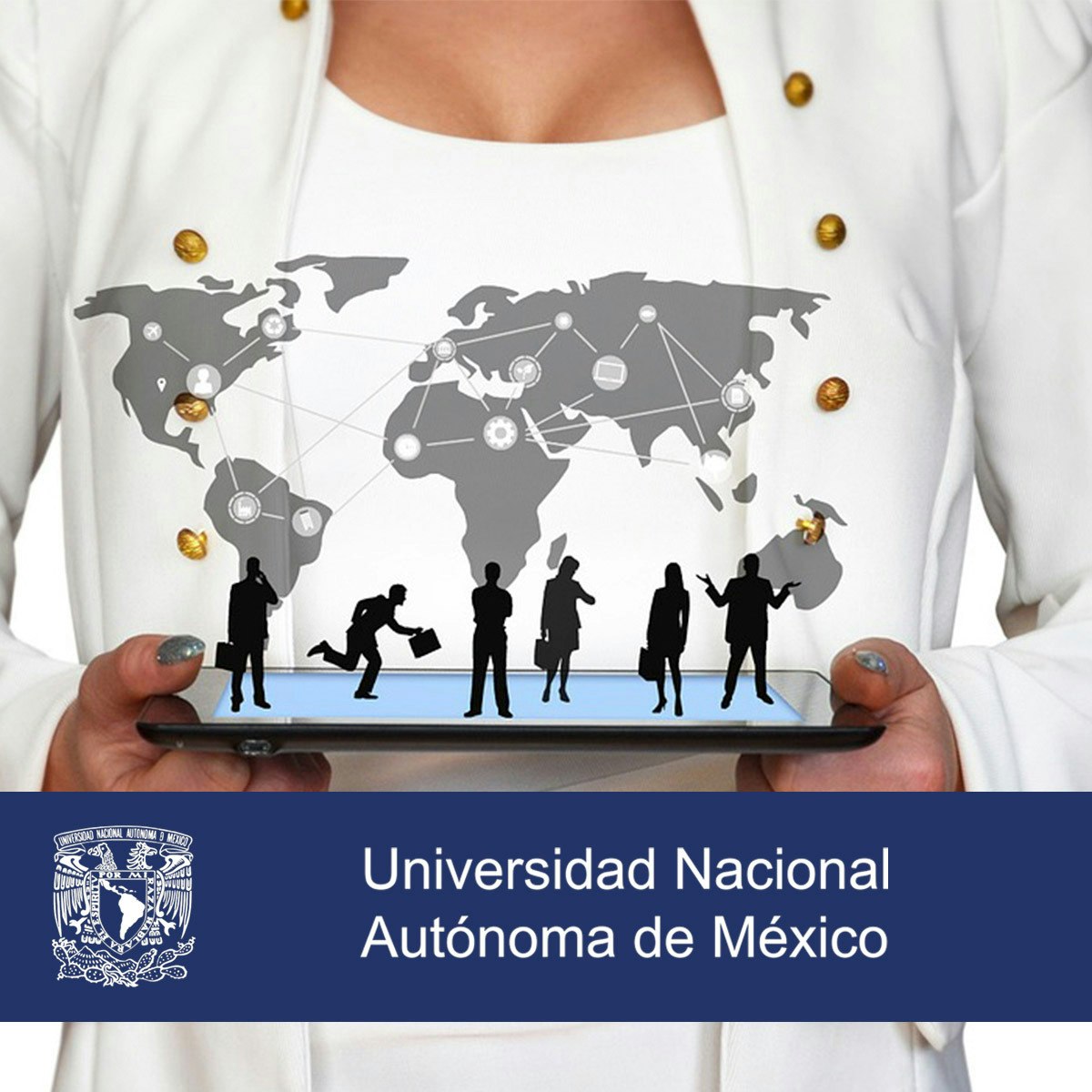International Relations
Navigating the Complex World of International Relations
International Relations (IR) is a dynamic and multifaceted field dedicated to understanding the intricate web of interactions that occur across national borders. At its core, IR examines how states, international organizations, non-governmental organizations (NGOs), and multinational corporations (MNCs) relate to one another on the global stage. This discipline seeks to unravel the complexities of global politics, exploring everything from the causes of war and peace to the dynamics of international trade and the foundations of international law. It's a field that constantly evolves, reflecting the changing nature of global power structures and the emergence of new global challenges. For those drawn to understanding the "why" behind global events, IR offers a compelling lens through which to view the world. Imagine dissecting the motivations behind a major international treaty, analyzing the economic forces shaping global trade patterns, or contributing to efforts that address worldwide issues like climate change or human rights. The study and practice of IR can be incredibly engaging, offering opportunities to grapple with some of the most pressing questions of our time. It's a field that demands critical thinking and an appreciation for diverse perspectives, making it a continuously stimulating area of study and work. For many, the appeal lies in the potential to contribute to a more peaceful, just, and prosperous world.
What is International Relations?
International Relations (IR), sometimes referred to as international studies or international affairs, is both an academic discipline and a field of practical application that focuses on the interactions between various global actors. While traditionally centered on the relationships between nation-states, its scope has significantly broadened to include the roles and impacts of international bodies like the United Nations, non-state actors such as Amnesty International or Greenpeace, and powerful economic entities like multinational corporations. Essentially, IR seeks to explain the political, economic, social, and cultural connections that transcend national boundaries.
The discipline delves into a wide array of topics, from the nuances of diplomacy and the intricacies of foreign policy to the devastating realities of war and the collaborative efforts towards peace. It grapples with fundamental questions about power: how it's acquired, how it's wielded, and how it shifts. It also investigates the drivers of cooperation between nations and the underlying causes of conflict. Why do some nations choose alliance while others pursue confrontation? How do international norms and laws shape behavior on the global stage? These are the kinds of inquiries that lie at the heart of International Relations.
One of the defining characteristics of IR is its interdisciplinary nature. It doesn't exist in a vacuum but rather draws heavily from a diverse range of other academic fields. Political Science provides foundational concepts of governance and power, while history offers the essential context for understanding current global dynamics. Economics is crucial for analyzing international trade, finance, and development. Sociology contributes insights into social structures and movements that cross borders, and law provides the framework for international treaties and organizations. This rich interdisciplinary approach allows for a more holistic and nuanced understanding of global affairs.
In an era defined by globalization and unprecedented interconnectedness, a grasp of International Relations is more crucial than ever. Issues such as climate change, pandemics, terrorism, and economic stability do not respect national borders; they are inherently global challenges that require international cooperation to address effectively. Understanding IR equips individuals with the analytical tools to comprehend these complex issues, evaluate different perspectives, and potentially contribute to finding solutions. Whether you are a student, a professional, or simply a curious global citizen, knowledge of IR provides a vital framework for making sense of the world around us and our place within it.
For those beginning to explore this vast domain, a foundational course can illuminate the core concepts and actors shaping our world. These courses often provide an excellent starting point for understanding the complexities of global interactions.
Key Theories and Approaches
To make sense of the complex web of global interactions, scholars and practitioners of International Relations rely on several major theoretical paradigms. These theories offer different lenses through which to analyze events, understand state behavior, and predict future trends. They are not just abstract academic exercises; they profoundly influence how policymakers perceive challenges and formulate responses. Grasping these theoretical foundations is akin to acquiring a toolkit for dissecting and interpreting the often-bewildering landscape of international affairs.
These courses provide deeper dives into the theoretical underpinnings of International Relations, helping learners to distinguish between different schools of thought and apply them to real-world scenarios.
Understanding the Dominant Paradigms: Realism, Liberalism, and Constructivism
Realism is one of the oldest and, for many, the most enduring theoretical traditions in IR. At its core, Realism views the international system as anarchic, meaning there is no overarching global government to enforce rules or maintain order. In this environment, states are considered the primary actors, and they are driven by a desire for power and security to ensure their own survival. Realists tend to be skeptical about the prospects for lasting peace and emphasize the competitive nature of international politics. Classical Realists might focus on human nature's inherent drive for power, while Neorealists, or Structural Realists like Kenneth Waltz, emphasize the structure of the international system itself—particularly the distribution of power among states—as the key determinant of behavior. [5, zvnlly]
In contrast to Realism, Liberalism offers a more optimistic perspective. While acknowledging the anarchic nature of the international system, Liberals emphasize the potential for cooperation and the importance of international institutions, economic interdependence, and the spread of democracy in fostering peace. They argue that states are not the only important actors; international organizations (like the UN), non-governmental organizations, and multinational corporations also play significant roles. Neoliberal Institutionalists, for instance, focus on how international institutions can facilitate cooperation by providing information, reducing transaction costs, and establishing mechanisms for monitoring and enforcement.
Constructivism emerged as a major challenger to both Realism and Liberalism in the late 20th century. Constructivists argue that the international system is not just about material structures (like power distribution or economic ties) but also about shared ideas, norms, identities, and social practices. In other words, "anarchy is what states make of it," as famously stated by Alexander Wendt. Interests and identities of states are not seen as fixed but are socially constructed through interaction. This approach highlights the importance of understanding how ideas and norms (e.g., about sovereignty, human rights, or the use of force) shape state behavior and the international system itself. [thtc32]
Other Influential Perspectives
Beyond the "big three," several other theoretical approaches offer valuable insights into international relations. Marxist and Critical Theories, for example, focus on the economic and material aspects of the international system, emphasizing class struggle, exploitation, and the ways in which global capitalism shapes international politics. They often highlight inequalities between the Global North and Global South and critique the existing global order.
Feminist IR theories examine how gender shapes global politics and how international relations, in turn, impact gender relations. They critique the male-dominated nature of traditional IR scholarship and practice, bringing attention to issues often overlooked, such as the experiences of women in conflict, the role of gender in international security, and the gendered dimensions of global economic processes.
The English School, while sharing some common ground with both realism and liberalism, posits the existence of an "international society" rather than just an "international system." This society is characterized by shared norms, rules, and institutions that states create and uphold, even in the absence of a world government. It emphasizes the importance of diplomacy, international law, and the balance of power as mechanisms for maintaining order within this society of states.
To gain a comprehensive overview of various IR theories, including these alternative perspectives, consider exploring the following resources:
Analyzing International Events: The Levels of Analysis
To systematically study international phenomena, IR scholars often employ the "levels of analysis" framework, most famously articulated by Kenneth Waltz. This framework helps to categorize the causes of international events by looking at different sources of explanation: the individual level, the state level, and the international system level.
The individual level focuses on the perceptions, choices, and actions of specific decision-makers, such as presidents, prime ministers, or diplomats. Their personalities, beliefs, and psychological biases can significantly influence foreign policy. The state level examines the domestic factors within a country that shape its foreign policy, including its type of government (e.g., democracy vs. autocracy), economic system, interest groups, public opinion, and national culture. Finally, the international system level analyzes the characteristics of the global system itself, such as the distribution of power among states (e.g., unipolarity, bipolarity, multipolarity), the presence or absence of international institutions, and prevailing international norms.
For example, to understand the causes of a specific war, a Realist might focus on a systemic-level explanation like a shift in the balance of power. A Liberal might look at the state level, perhaps noting the aggressive nature of an autocratic regime involved, or the lack of mediating international institutions. A Constructivist might examine how evolving norms about intervention or national identity played a role. Using different theories and levels of analysis allows for a richer, more comprehensive understanding of the complexities of international relations.
Historical Evolution of the International System
Understanding contemporary International Relations necessitates a journey through its historical evolution. The way states interact today, the institutions they've built, and the norms they largely abide by are products of centuries of development, conflict, and cooperation. Key historical junctures have fundamentally reshaped the global landscape, leading to the complex international system we navigate in the 21st century.
Tracing this evolution helps contextualize current global challenges and appreciate the long-term trends that continue to influence international affairs. Several courses offer in-depth explorations of these historical transformations.
The Dawn of the Modern State System
Many scholars point to the Peace of Westphalia in 1648 as a pivotal moment in the development of the modern international system. These treaties, which ended the Thirty Years' War in Europe, are often credited with codifying the principles of state sovereignty—the idea that states are independent and have authority over their own territory, free from external interference in their internal affairs. This Westphalian system, characterized by sovereign states as the primary actors, laid the groundwork for international law and diplomacy as we know them. While the reality was more complex and sovereignty evolved over time, Westphalia marked a significant shift away from the vaguely hierarchical religious order of medieval Europe towards a system of formally equal, sovereign entities.
The centuries that followed saw the consolidation of state power, the rise and fall of empires, and the development of more formalized diplomatic practices. The Concert of Europe, established after the Napoleonic Wars in the early 19th century, was an early attempt by major European powers to manage international relations and maintain stability through regular consultations and collective action, albeit one that ultimately could not prevent larger conflicts.
Twentieth-Century Upheavals and Transformations
The 20th century witnessed dramatic and often violent transformations that profoundly shaped the international system. The First World War (1914-1918) led to the collapse of major empires (Ottoman, Austro-Hungarian, Russian, German) and the redrawing of maps. It also spurred the creation of the League of Nations, an ambitious attempt to establish a system of collective security and prevent future wars, though it ultimately failed in this primary objective.
The Second World War (1939-1945) was even more devastating and had far-reaching consequences. It led to the rise of two superpowers, the United States and the Soviet Union, and ushered in the era of the Cold War—a period of intense geopolitical rivalry, ideological struggle, and a nuclear arms race that dominated international relations for over four decades. The end of WWII also saw the establishment of the United Nations (UN) in 1945, a new international organization designed to maintain international peace and security, foster cooperation, and promote human rights. This period also marked the beginning of decolonization, as numerous nations in Asia and Africa gained independence, dramatically expanding the membership of the international community of states.
This book offers a look at the historical context of global power dynamics.
The Post-Cold War Era and Globalization
The collapse of the Soviet Union in 1991 marked the end of the Cold War and heralded a new era in international relations. Some proclaimed a "unipolar moment" with the United States as the sole superpower, while others foresaw the rise of a more multipolar world. This period was characterized by the rapid acceleration of globalization—the increasing interconnectedness of societies in economic, political, cultural, and technological spheres. This brought new opportunities for cooperation but also new challenges, including the rise of transnational terrorism, concerns about economic inequality, and the spread of global pandemics.
The post-Cold War era also saw the evolution of international norms, particularly regarding humanitarian intervention and the "Responsibility to Protect" (R2P), which suggests that states have a responsibility to protect their populations from mass atrocities and that the international community has a role to play if states fail to do so. [wxxkn7] International organizations and international law continued to develop, though their effectiveness often remained contested. Understanding these historical shifts—from Westphalia to the Cold War, and into the complexities of the 21st-century globalized world—is essential for anyone seeking to comprehend or influence contemporary international affairs.
These resources delve into the concept of globalization and its historical impact.
Actors on the Global Stage
While historical analyses often emphasize the role of states, the contemporary international arena is populated by a diverse array of actors, each influencing global events in distinct ways. Understanding the characteristics, motivations, and interactions of these various players is crucial for a comprehensive grasp of International Relations. The global stage is no longer a simple drama played out solely by nations; it's a complex interplay involving numerous influential entities.
Courses that explore specific regions or the roles of different international bodies can provide valuable insights into these actors.
Nation-States: The Primary, Yet Evolving, Actors
Nation-states remain the principal actors in the international system. Possessing sovereignty, a defined territory, a permanent population, and a government, states are the entities that sign treaties, go to war, engage in diplomacy, and are members of most major international organizations. Their foreign policies, driven by perceived national interests, continue to be a central focus of IR study. From great powers with global reach to smaller states navigating a complex world, the actions and interactions of nation-states fundamentally shape international politics, security, and economics. However, the power and autonomy of states are increasingly challenged and complemented by other actors in a globalized world.
Intergovernmental Organizations (IGOs)
Intergovernmental Organizations (IGOs) are entities created by states through international treaties to address shared interests and problems. The United Nations (UN) is perhaps the most prominent example, with its broad mandate covering peace and security, economic and social development, human rights, and international law. Other significant IGOs include regional bodies like the European Union (EU), which has achieved a high degree of political and economic integration among its member states; military alliances such as the North Atlantic Treaty Organization (NATO), focused on collective defense; and economic institutions like the World Trade Organization (WTO), the International Monetary Fund (IMF), and the World Bank, which govern and influence global trade and finance. IGOs serve as forums for cooperation, mechanisms for dispute resolution, and platforms for developing and enforcing international norms and rules.
These courses can offer a closer look at specific IGOs and their roles.
Non-Governmental Organizations (NGOs)
Non-Governmental Organizations (NGOs) are private, voluntary organizations that operate independently of governments, though they may receive government funding. They play an increasingly vital role in international relations, particularly in areas like human rights advocacy (e.g., Amnesty International, Human Rights Watch), environmental protection (e.g., Greenpeace, World Wildlife Fund), humanitarian aid (e.g., Doctors Without Borders, Oxfam), and development. NGOs influence international affairs by raising awareness, lobbying governments and IGOs, providing services directly to populations, monitoring compliance with international agreements, and mobilizing public opinion. Their ability to operate transnationally and focus on specific issues gives them a unique and often powerful voice on the global stage.
Multinational Corporations (MNCs)
Multinational Corporations (MNCs) are businesses that operate in multiple countries, with headquarters typically in one state and subsidiaries or operations in others. These economic giants wield significant influence in international economics and, increasingly, in politics. Through foreign direct investment, global supply chains, and international trade, MNCs shape patterns of economic development, employment, and technological diffusion. Their activities can impact labor standards, environmental regulations, and even the foreign policies of states. The sheer economic power of some MNCs rivals that of many smaller countries, making them critical actors in the global political economy.
Other Influential Entities
Beyond these major categories, other entities also exert influence on the global stage. Transnational advocacy networks, which bring together NGOs, IGOs, and individuals across borders to promote specific causes, have become adept at shaping international agendas. Epistemic communities, or networks of experts with recognized expertise and competence in a particular domain (e.g., climate scientists), can significantly influence policy debates and the development of international regimes. Influential individuals, from political leaders and activists (like Malala Yousafzai) to philanthropists and intellectuals, can also shape global discourse and action. Even illicit actors, such as international criminal organizations or terrorist networks, impact international security and governance. Recognizing this diverse cast of characters is essential to understanding the multifaceted nature of contemporary international relations.
A course focusing on the role of local governments can also provide a unique perspective on how sub-state actors engage internationally.
Core Subfields within International Relations
The field of International Relations is vast, encompassing a wide array of issues and approaches. To manage this breadth, the discipline is often broken down into several core subfields, each focusing on specific aspects of global interactions. These specializations allow students, researchers, and practitioners to develop deeper expertise in particular areas, while still recognizing the interconnectedness of global challenges. Understanding these subfields can help individuals identify their areas of interest and navigate the diverse landscape of IR study and careers.
For those looking to specialize or simply understand the different facets of IR, exploring courses dedicated to these subfields can be highly beneficial.
International Security Studies
International Security Studies is arguably one of the most traditional and central subfields of IR. It focuses on issues of war, peace, conflict, and the use of force in international politics. Key topics include the causes of war, conflict resolution, arms control and disarmament, nuclear proliferation, military strategy, intelligence, counter-terrorism, peacekeeping operations, and cyber warfare. Scholars and practitioners in this area analyze the conditions that lead to violence between states and other actors, and explore strategies for preventing, managing, and resolving conflicts. Given the enduring challenges of global security, this subfield remains critically important.
The following topic may be of interest for those keen on security issues.
International Political Economy (IPE)
International Political Economy (IPE) examines the intricate relationship between politics and economics at the global level. It explores how political forces shape economic outcomes and how economic factors influence political power and decision-making. Core areas of IPE include international trade, global finance, multinational corporations, economic development, globalization, and the politics of international economic institutions like the World Bank, IMF, and WTO. [13, 352a9f] IPE scholars analyze issues such as trade wars, financial crises, economic inequality between and within nations, and the impact of globalization on states and societies.
This topic provides a complementary perspective to IPE.
Foreign Policy Analysis (FPA)
Foreign Policy Analysis (FPA) focuses on the decision-making processes of states and other international actors. Rather than looking solely at the outcomes of interactions (like wars or trade agreements), FPA delves into how foreign policy decisions are made. It considers the roles of individual leaders (their beliefs, personalities, and decision-making styles), bureaucratic politics within governments, domestic political pressures (like public opinion and interest groups), and the influence of national identity and culture on foreign policy choices. FPA seeks to understand why states choose particular courses of action in their dealings with the rest of the world.
This topic is central to FPA.
International Law and Organizations
This subfield concentrates on the role of international law, international organizations, and international norms in shaping global order. It examines the sources of international law (treaties, customary law, general principles), the functioning and effectiveness of international courts and tribunals (like the International Court of Justice or the International Criminal Court), and the operations of IGOs like the UN and its various agencies. Key questions include how international law is created, interpreted, and enforced in an anarchic system, and how international organizations contribute to cooperation, governance, and the resolution of global problems.
Other Significant Areas of Study
Beyond these major subfields, IR encompasses a range of other important areas of specialization. Human Rights focuses on the promotion and protection of fundamental human rights globally, examining international human rights law, the work of NGOs, and issues like genocide, torture, and political repression. Environmental Politics addresses global environmental challenges such as climate change, biodiversity loss, and resource scarcity, analyzing international environmental agreements and the politics of environmental governance.
Area Studies involves in-depth expertise on specific geographic regions (e.g., Middle East, East Asia, Latin America), combining language skills with knowledge of the history, politics, culture, and economics of those areas. Diplomacy studies the art and practice of negotiation and communication between states and other international actors, including diplomatic history, negotiation strategies, and the changing nature of diplomatic representation in the modern world. [29, 5grpzx] These diverse subfields reflect the multifaceted nature of International Relations and offer numerous avenues for specialized study and contribution.
Analyzing Contemporary Global Issues
The true value of International Relations lies in its ability to help us understand and navigate the complex global issues that define our times. From pandemics that transcend borders to geopolitical rivalries that shape international security, IR theories, concepts, and analytical frameworks provide essential tools for making sense of a rapidly changing world. Applying these tools to real-world situations allows us to move beyond headlines and gain deeper insights into the forces driving global events and the potential pathways toward solutions.
Many online courses focus specifically on contemporary challenges, offering timely analyses of current events through an IR lens. These can be invaluable for staying informed and applying theoretical knowledge to practical problems.
Understanding Today's Pressing Challenges
Contemporary global challenges are numerous and interconnected. Climate change, for instance, is not merely an environmental issue; it has profound implications for international security (e.g., resource scarcity leading to conflict), economic development (e.g., impact on agriculture and coastal communities), and human migration. Understanding international climate negotiations, the role of different state and non-state actors, and the barriers to collective action requires a sophisticated IR perspective. Similarly, addressing global pandemics like COVID-19 involves analyzing international cooperation in health governance, the political economy of vaccine distribution, and the impact of national responses on international travel and trade.
Geopolitical competition between major powers, such as the ongoing complexities in relations between the United States, China, and Russia, continues to be a dominant feature of the international landscape. IR theories like Realism and Liberalism offer different ways to interpret these rivalries, the pursuit of national interests, and the potential for conflict or cooperation. Other pressing issues include the spread of transnational terrorism, the challenges of managing global migration flows, the fight against global poverty and inequality, and the risks associated with cyber warfare and the weaponization of new technologies. Many of these issues are explored in depth by organizations like the World Economic Forum in their analysis of global risks.
The Role of International Actors in Addressing Global Problems
Addressing these multifaceted global issues requires the involvement of a wide range of international actors. Nation-states, through their foreign policies and participation in international forums, remain central. However, their efforts are often complemented, and sometimes challenged, by Intergovernmental Organizations (IGOs) like the United Nations, which play crucial roles in coordinating responses, setting agendas, and providing platforms for negotiation. For example, UN agencies are at the forefront of humanitarian relief efforts, peacekeeping operations, and promoting sustainable development goals.
Non-Governmental Organizations (NGOs) are also critical in tackling contemporary challenges, from advocating for human rights and environmental protection to delivering aid and monitoring compliance with international agreements. Multinational Corporations (MNCs) have a significant impact, both positive and negative, on issues like labor standards, environmental sustainability, and access to technology. Understanding how these diverse actors interact—their competing interests, their capacities for cooperation, and the power dynamics between them—is essential for analyzing efforts to manage global problems.
Domestic Politics and International Interplay
It is crucial to recognize that the way global issues are addressed is often deeply intertwined with domestic politics. A state's foreign policy and its willingness to cooperate internationally are heavily influenced by its internal political system, economic conditions, public opinion, and the interests of domestic groups. For example, a government's stance on a trade agreement or a climate accord can be shaped by the concerns of its industries, labor unions, or environmental activists.
Conversely, international events and pressures can have significant impacts on domestic politics. A global economic recession can affect national employment and political stability, while international norms regarding human rights can empower domestic advocacy groups. This interplay between the domestic and international spheres adds another layer of complexity to the analysis of contemporary global issues and the search for effective solutions.
Challenges to Cooperation and Prospects for Collective Action
Despite the clear need for international cooperation to address shared challenges, achieving effective collective action is often difficult. The anarchic nature of the international system, where there is no overarching authority to enforce agreements, means that cooperation relies on the willingness of sovereign states. Differing national interests, disparities in power and resources, and issues of trust and commitment can all hinder collaborative efforts.
Moreover, the rise of nationalism and protectionist sentiments in some parts of the world can undermine multilateralism. However, the increasing interdependence of nations also creates strong incentives for cooperation. The future of global stability, economic prosperity, and human well-being will largely depend on the ability of the international community to overcome these challenges and find common ground on the most pressing issues of our time. Studying IR provides the tools to analyze these dynamics and contribute to a more informed global citizenry capable of supporting constructive international engagement.
Consider this book for insights into navigating international crises.
Formal Education in International Relations
For those aspiring to delve deep into the complexities of global affairs, a formal education in International Relations provides a structured and comprehensive pathway. From foundational coursework in high school to advanced doctoral research, educational programs in IR are designed to equip students with the theoretical knowledge, analytical skills, and practical understanding necessary for academic pursuits or professional careers in this dynamic field. These programs typically emphasize critical thinking, research methodologies, and a nuanced understanding of historical and contemporary global issues.
The journey often begins with foundational knowledge and can lead to specialized degrees. Online courses can serve as excellent introductions or supplement formal degree programs by offering focused learning on specific topics or theories within IR.
Laying the Groundwork: High School Preparation
Interest in International Relations can be nurtured even before university. High school students can lay a strong foundation by excelling in courses such as history (especially world history), economics, geography, and government or civics. Developing strong writing and analytical skills through English and social studies classes is also crucial. Participation in extracurricular activities like debate clubs, Model United Nations (Model UN), and current events clubs can provide valuable early exposure to diplomatic processes, global issues, and public speaking. [5wq44k] Cultivating an awareness of global news and different cultural perspectives will also serve aspiring IR students well.
Undergraduate Studies: Bachelor's Degrees (BA/BS)
A Bachelor of Arts (BA) or Bachelor of Science (BS) in International Relations, International Studies, or Political Science with an IR concentration is the most common starting point for formal study. Undergraduate programs typically offer a broad overview of the field, including core courses in IR theory, comparative politics, international political economy, and foreign policy. Students will also take electives that allow them to explore specific subfields like international security, international law, human rights, or area studies focusing on particular regions of the world. Many programs encourage or require the study of at least one foreign language, recognizing its importance in international careers. Minors in complementary fields such as economics, history, journalism, or a foreign language are often recommended to enhance a student's profile and skills.
The International Studies category on OpenCourser offers a glimpse into the breadth of topics covered at the undergraduate level and beyond.
Graduate Studies: Master's Degrees for Professional Advancement
For many careers in International Relations, particularly in policy, diplomacy, international organizations, and specialized research, a master's degree is often a prerequisite or highly advantageous. Common graduate degrees include the Master of Arts (MA) in International Relations, Master of International Affairs (MIA), Master of Public Policy (MPP) with an international focus, and Master of Arts in Law and Diplomacy (MALD). These programs, typically lasting one to two years, offer more specialized and intensive training than undergraduate studies. They often emphasize professional skill development, such as policy analysis, program management, negotiation, and quantitative methods, alongside advanced academic coursework. Many master's programs also require a capstone project, thesis, or substantial research paper, and they often have strong career services to help graduates find employment.
The Path of Academia: Doctoral Programs (PhD)
A Doctor of Philosophy (PhD) in International Relations or Political Science (with an IR specialization) is primarily for individuals aspiring to careers in academic research and university teaching. PhD programs are rigorous and research-intensive, typically involving several years of advanced coursework, comprehensive examinations in major subfields, and the completion of a dissertation—a substantial piece of original scholarly research. Doctoral candidates develop deep theoretical expertise and sophisticated research methodologies. The PhD journey is a significant commitment, demanding intellectual curiosity, perseverance, and a passion for advancing knowledge in the field of International Relations. Many PhD programs also provide opportunities for teaching experience and collaboration on research projects with faculty.
Beyond the Classroom: Enhancing Formal Education
Formal education in IR is significantly enriched by experiences outside the traditional classroom. Internships with government agencies, international organizations, NGOs, think tanks, or private sector firms provide invaluable practical experience, networking opportunities, and insights into potential career paths. Study abroad programs offer firsthand exposure to different cultures, political systems, and languages, broadening students' perspectives and enhancing their cross-cultural communication skills. Proficiency in one or more foreign languages is a highly valued asset in the IR field and can open doors to a wider range of opportunities. Combining rigorous academic study with these practical and experiential learning components creates a well-rounded preparation for tackling the complexities of international affairs.
Alternative Learning and Skill Development
While formal degree programs provide a structured and comprehensive education in International Relations, they are not the only avenues for acquiring knowledge and developing relevant skills. In today's information-rich environment, a wealth of alternative learning opportunities exists for students at all levels, career changers, practitioners seeking to update their expertise, and curious individuals passionate about global affairs. These alternative paths can supplement formal education, bridge knowledge gaps, or provide a flexible way to engage with specific IR topics and cultivate practical competencies.
For those looking to build a foundational understanding or delve into specialized topics without committing to a full degree program, online courses offer a flexible and accessible option. Platforms like OpenCourser curate a vast selection of courses from various providers, allowing learners to explore specific areas of interest within IR, such as global strategy or the dynamics of specific international relationships.
Leveraging Online Courses and Resources
Reputable online courses can be an excellent resource for gaining foundational knowledge in IR or exploring specialized niches like conflict resolution, international law, or regional studies. [4saoje, s51qnq] Many universities and expert instructors offer courses through various online platforms, covering a wide spectrum of IR-related subjects. These can range from introductory surveys to advanced seminars on specific theories or contemporary issues. When selecting online courses, it's beneficial to look for those offered by well-regarded institutions or taught by instructors with established expertise in the field. OpenCourser's platform can assist in this by providing detailed information about courses, including instructor backgrounds, institutional affiliations, and learner reviews, helping you find high-quality learning experiences tailored to your needs. Learners can save courses to a list to compare and plan their learning journey.
Staying Informed: The Importance of Reputable Sources
A crucial aspect of skill development in IR is staying continuously informed about current global events and analytical perspectives. Regularly engaging with reputable international news sources provides up-to-date information on political, economic, and social developments worldwide. For deeper analysis, academic journals such as Foreign Affairs, International Security, or the Journal of Conflict Resolution publish cutting-edge research and scholarly debates. Publications from respected think tanks like the Brookings Institution, the Council on Foreign Relations, or the Carnegie Endowment for International Peace offer policy-relevant research, commentary, and event summaries. Following these sources helps develop a nuanced understanding of ongoing issues and the different viewpoints surrounding them.
Cultivating Practical, Transferable Skills
Beyond theoretical knowledge, success in IR-related fields often hinges on a set of practical skills. Proficiency in one or more foreign languages is a significant asset, enhancing communication and cultural understanding. Analytical and critical thinking skills are paramount for dissecting complex issues, evaluating evidence, and forming reasoned judgments. The ability to conduct thorough research, synthesize information from diverse sources, and write clearly and persuasively is also essential. Furthermore, skills in data analysis are increasingly valuable for understanding trends in international economics, conflict patterns, or public opinion. Strong cross-cultural communication and negotiation skills are vital for effective interaction in diverse international settings.
Gaining Experience Through Simulations and Applied Learning
Practical experience can be gained through various applied learning opportunities. Simulations like Model United Nations (Model UN) or international negotiation exercises allow participants to step into the shoes of diplomats, grapple with real-world issues, and practice skills in diplomacy, public speaking, and resolution drafting. [5wq44k] Participating in policy brief writing competitions challenges individuals to analyze a current issue and propose concrete policy recommendations in a concise format. These activities not only build practical skills but also demonstrate initiative and engagement to potential employers or academic programs.
Self-Directed Learning and Engagement
Self-directed projects offer another avenue for skill development. This could involve undertaking an independent research project on a topic of interest, starting a blog or podcast discussing international affairs, or organizing local events related to global issues. Volunteering with organizations that work on international causes, even at a local chapter level, can provide exposure to the field and opportunities to contribute meaningfully. Engaging with relevant professional associations or attending public lectures and conferences (many of which are now available online) can also broaden one's network and understanding. These proactive approaches to learning and engagement demonstrate a commitment to the field and can be instrumental in building a compelling profile for future endeavors in International Relations.
Building a Career in International Relations
A background in International Relations can open doors to a remarkably diverse array of career paths spanning the public, private, and non-profit sectors. The analytical, communication, and cross-cultural skills honed through IR studies are highly valued in a globalized world. Embarking on a career in this field can be both challenging and deeply rewarding, offering opportunities to engage with critical global issues and potentially make a tangible impact. However, it's also a competitive arena, often requiring dedication, strategic preparation, and a proactive approach to gaining experience and building networks.
For those considering this path, understanding the landscape of opportunities and the skills required is the first step. Online courses can help individuals gain specific knowledge relevant to certain sectors or roles within IR.
Major Career Sectors
Careers in International Relations are broadly found across several key sectors. The Government sector is a traditional and significant employer, offering roles in diplomacy (e.g., as a Diplomat or Foreign Service Officer), intelligence analysis, defense and security agencies, international trade departments, and development aid agencies. [3, 33, lazeux] Working for the government can involve representing one's country abroad, analyzing foreign policy, or managing international programs.
International Organizations (IGOs), such as the United Nations system (including UNICEF, UNHCR, UNDP), the World Bank, the International Monetary Fund (IMF), and regional bodies like the EU or ASEAN, are major employers of IR professionals. Roles within IGOs can range from program management and policy analysis to peacekeeping operations and humanitarian assistance coordination. These positions often require a strong commitment to multilateralism and experience in diverse cultural settings.
Non-Governmental Organizations (NGOs) and Non-profits offer a wide spectrum of opportunities in areas like human rights advocacy, environmental protection, humanitarian relief, international development, and peacebuilding. Working for an NGO can involve fieldwork, research, advocacy, fundraising, and project management, often with a focus on specific issues or regions. The career of an International Development Specialist often falls within this sector or with IGOs. [p3uo5g]
The Private Sector also seeks individuals with IR skills, particularly in multinational corporations, consulting firms, financial institutions, and risk analysis companies. Roles can include political risk analyst, international trade specialist, corporate social responsibility manager, or consultant on international market entry. [3, r6hk5f] Finally, Academia and Think Tanks provide careers in research, teaching, and policy analysis for those with advanced degrees, contributing to the intellectual development of the field and informing policy debates. [3, on2ios] This can involve becoming a Professor or a Think Tank Researcher. [2s9gb2, on2ios] Some may also pursue careers as a Journalist covering international affairs. [8, i8f9j1]
Entry Points and Key Skills
Breaking into the IR field often begins with internships, fellowships, or volunteer programs, which provide essential experience and networking opportunities. Government agencies often have specific hiring processes, such as the Foreign Service Officer Test in the U.S. Entry-level roles might include research assistant, program associate, junior policy analyst, or communications officer. Key skills consistently sought by employers include strong analytical and critical thinking abilities, excellent written and verbal communication skills (including cross-cultural communication), research proficiency, problem-solving capabilities, and adaptability. Foreign language proficiency is a significant advantage in many IR careers.
Career Advancement and Salary Expectations
Career advancement in International Relations often involves gaining specialized expertise, taking on increasing levels of responsibility, and demonstrating leadership. Networking plays a crucial role throughout one's career, as connections can lead to new opportunities and collaborations. For many roles, particularly those involving policy or research, a graduate degree (Master's or PhD) is often necessary or highly beneficial for advancement.
Salary expectations in IR can vary widely depending on the sector, location, level of experience, and specific role. Entry-level positions may range from $40,000 to $70,000 annually in the U.S., but this is a broad estimate. Public sector and NGO salaries may differ from those in the private sector, with consulting or international business roles sometimes offering higher compensation. Data from May 2025 indicates an average annual pay for "International Relations" roles in the United States around $78,084, though this is a general figure and specific job titles will have different averages. For example, an Intelligence Analyst might average around $76,000, while a Diplomat could average around $90,000. It's important to research salary benchmarks for specific roles and sectors of interest. The U.S. Bureau of Labor Statistics (BLS) projects growth in related fields; for example, jobs for political scientists are expected to grow, as are roles for social and community service managers. The Occupational Outlook Handbook from the BLS is a valuable resource for detailed job outlook information in the U.S.
The path to a fulfilling career in International Relations requires patience and persistence. For those starting out or considering a pivot, remember that every experience, from an internship to a relevant volunteer role, builds your skill set and understanding. The field is competitive, yes, but it is also filled with passionate individuals dedicated to making a difference on a global scale. Your unique perspective and dedication are valuable assets.
Unique Aspects and Considerations
Working or studying in the field of International Relations comes with its own set of unique aspects and considerations that distinguish it from many other disciplines. These range from grappling with profound ethical questions to navigating the complexities of cross-cultural interactions and adapting to an ever-changing global landscape. Understanding these nuances is important for anyone considering a path in IR, as it helps to form a realistic picture of the challenges and rewards involved.
This advanced course explores the concept of "soft power" and its implications, a key consideration in modern diplomacy.
Navigating Ethical Dilemmas
Professionals in International Relations frequently encounter complex ethical dilemmas. Decisions regarding humanitarian intervention, the imposition of economic sanctions, the allocation of foreign aid, or the conduct of foreign policy often involve weighing competing values and potential consequences. For instance, should a state intervene in another sovereign nation to prevent mass atrocities, even without a UN mandate? How can foreign aid be distributed effectively without inadvertently propping up corrupt regimes? What are the ethical limits of intelligence gathering or counter-terrorism operations? There are rarely easy answers to such questions, and IR practitioners must often navigate these moral gray areas with careful consideration and a strong ethical compass.
The following book delves into one of the most debated ethical principles in modern IR.
The Imperative of Cultural Sensitivity
Given the inherently international nature of the field, cultural sensitivity and strong cross-cultural communication skills are not just beneficial but absolutely critical. Misunderstandings arising from cultural differences can derail negotiations, damage diplomatic relations, or undermine the effectiveness of international projects. Successful IR professionals must be adept at understanding different cultural norms, communication styles, and perspectives. This requires humility, empathy, active listening, and a willingness to learn about and adapt to diverse cultural contexts. Proficiency in foreign languages greatly aids this, but even without fluency, a demonstrated respect for and curiosity about other cultures is paramount. [t5is52]
This course specifically addresses negotiations across cultures.
Transferability of Skills
One of the positive aspects of an IR education is the high transferability of the skills acquired. The ability to conduct in-depth research, analyze complex information from diverse sources, write clearly and persuasively, communicate effectively across cultures, and solve intricate problems are valuable in a wide range of fields beyond traditional IR careers. Graduates with IR backgrounds may find opportunities in business, law, journalism, education, domestic public administration, and various consulting roles. This versatility provides a degree of career flexibility, which can be reassuring in a dynamic job market. The rigorous analytical training involved in IR is applicable to many sectors that require understanding complex systems and diverse actors.
Dealing with an Unpredictable Global Environment
The field of International Relations is intrinsically linked to global events, which are often unpredictable and subject to rapid change. Political shifts, unexpected conflicts, economic crises, or natural disasters can significantly alter the international landscape, impacting career stability, focus areas, and the demand for certain types of expertise. Professionals in this field must be adaptable, resilient, and capable of quickly learning about and responding to new developments. This constant evolution can be intellectually stimulating, but it also requires a comfort with uncertainty and an ability to pivot when circumstances demand.
The Competitive Nature of Desirable Sectors
It is important to acknowledge that certain sectors within International Relations, particularly high-profile roles in diplomacy, major Intergovernmental Organizations (like the UN or World Bank), and prestigious think tanks, are often highly competitive. The number of applicants for these positions typically far exceeds the number of openings. Success often requires a strong academic record (frequently including a graduate degree), relevant internships or work experience, language skills, and effective networking. While this competitiveness can be daunting, it also underscores the passion and dedication of those drawn to the field. For those aspiring to these roles, perseverance, strategic career planning, and a willingness to start in less prominent positions to gain experience are often key.
If you are navigating the early stages of your career or considering a change, remember that the journey into IR is often a marathon, not a sprint. Building expertise and networks takes time. Be open to diverse opportunities, as even roles that may not seem like a direct fit can provide valuable skills and stepping stones. The global challenges are immense, and every contribution, no matter the scale, plays a part.
Frequently Asked Questions (Career Focus)
Embarking on or transitioning into a career in International Relations often raises many practical questions. This section aims to address some of the most common inquiries from students, recent graduates, career changers, and even recruiters looking to understand the field better. The answers provided offer general guidance, but it's always advisable to research specific roles and organizations that align with your interests.
OpenCourser's Learner's Guide provides additional resources on career development and how to leverage online learning for professional growth, which can be particularly helpful when exploring a multifaceted field like IR.
What skills are most important for a career in International Relations?
A combination of hard and soft skills is crucial. Strong analytical and critical thinking skills are paramount for understanding complex global issues and formulating policy. Excellent written and verbal communication skills, including the ability to convey complex information clearly to diverse audiences, are essential. Research skills, problem-solving abilities, and adaptability are also highly valued. Cross-cultural communication skills and cultural sensitivity are indispensable for working effectively in international environments. Additionally, foreign language proficiency can be a significant asset.
Do I need a graduate degree to work in International Relations?
While some entry-level positions may be accessible with a bachelor's degree, particularly if combined with strong internships and relevant experience, a graduate degree (such as a Master's in International Relations, International Affairs, Public Policy, or a related field) is often required or highly preferred for many mid-level and senior positions, especially in policy, research, diplomacy, and international organizations. A master's degree can provide specialized knowledge and enhanced analytical skills that are attractive to employers. For academic careers (e.g., university professor), a PhD is typically necessary.
Is it necessary to learn a foreign language for a career in IR?
While not universally mandatory for every single role, proficiency in at least one foreign language is a highly valuable asset and often a significant advantage in the IR job market. It enhances your ability to communicate, understand different cultures, and access information. For certain roles, particularly in diplomacy, international organizations, or area-specific research, language skills may be a formal requirement. Even if not required, it demonstrates a commitment to international engagement and can open up more diverse career opportunities.
What kinds of internships are most valuable for breaking into the field?
Internships that provide substantive experience related to your area of interest are most valuable. This could include roles with government agencies (e.g., State Department, international development agencies), intergovernmental organizations (e.g., UN agencies, World Bank), non-governmental organizations focused on international issues (human rights, environment, development), think tanks conducting research on foreign policy, or even private sector companies with international operations. Look for internships that offer opportunities to conduct research, write reports or policy briefs, assist with program management, or engage in advocacy. The key is to gain practical skills and exposure to the workings of organizations in the IR sphere. Even an unpaid internship can be a crucial stepping stone if it provides significant learning and networking opportunities.
What are the main differences between working for the government, an IGO, or an NGO in IR?
Working for the government often means representing and advancing your country's national interests. Roles can range from diplomacy and policy formulation to intelligence and defense. The work can be highly structured, with established procedures and hierarchies.
Working for an Intergovernmental Organization (IGO) like the UN involves promoting international cooperation and addressing global issues from a multilateral perspective. Staff often come from diverse national backgrounds, and the focus is on implementing mandates agreed upon by member states. The work can involve global policymaking, program implementation in various countries, or coordinating international efforts.
Working for a Non-Governmental Organization (NGO) typically means focusing on specific issues (e.g., human rights, humanitarian aid, environmental protection) and advocating for change or providing direct services. NGOs often have more flexibility and can be more critical of government policies. The work can be very mission-driven and may involve grassroots engagement, advocacy campaigns, or fieldwork.
Each sector has its own culture, priorities, and career paths. Understanding these differences can help you identify which environment best aligns with your values and career goals.
How can I gain experience in IR if I didn't major in it?
Many skills are transferable. If you have a degree in a related field like history, economics, sociology, journalism, or even area studies, highlight the relevant analytical, research, and communication skills you've developed. Seek out internships or volunteer opportunities with internationally focused organizations to gain direct IR experience. Take relevant online courses to build foundational IR knowledge or specialize in a particular area – browsing OpenCourser's extensive catalog can help identify suitable options. Networking with professionals in the field, attending public lectures on international affairs, and staying well-informed about global issues are also crucial. Emphasize your transferable skills and demonstrate a genuine passion and understanding of international relations in your applications and interviews.
What is the job outlook for careers related to International Relations?
The job outlook varies by specific role and sector. According to the U.S. Bureau of Labor Statistics (BLS), employment for political scientists is projected to grow about as fast as the average for all occupations, while roles for economists and social and community service managers are projected to grow faster than average through 2028 (note: this data may be from before the current date of May 8, 2025, so it's good to check the BLS Occupational Outlook Handbook for the latest figures). More recent indicators suggest continued demand for IR professionals, with the U.S. State Department planning to fill Foreign Service vacancies and USAID also looking to hire. Global GDP growth projections also suggest a generally stable environment for diplomatic and international roles. However, competition for many positions, particularly in desirable organizations, remains strong. Success often depends on qualifications, experience, networking, and adaptability.
Can I work in International Relations remotely?
The feasibility of remote work in International Relations depends heavily on the specific role and organization. Traditionally, many IR jobs, especially in diplomacy or fieldwork, require an in-person presence. However, the COVID-19 pandemic accelerated the adoption of remote work arrangements across many sectors, and IR has not been entirely immune to this trend. Roles involving research, analysis, writing, online advocacy, or some types of consulting may offer remote or hybrid opportunities. Some international organizations and NGOs have also become more flexible. However, it's important to note that many core functions, particularly those involving direct international negotiation, representation, or on-the-ground program implementation, will likely continue to require physical presence. When searching for jobs, pay attention to location requirements and remote work policies, which are becoming more commonly specified in job postings.
Navigating the world of International Relations can be a fascinating and fulfilling journey. Whether you are just starting to explore this field or are looking to deepen your understanding, the dynamic nature of global interactions ensures that there is always more to learn and discover. The challenges are significant, but so too are the opportunities to contribute to a more interconnected and understanding world. We encourage you to continue your exploration, leverage the vast resources available, and pursue your interests with passion and diligence.






























